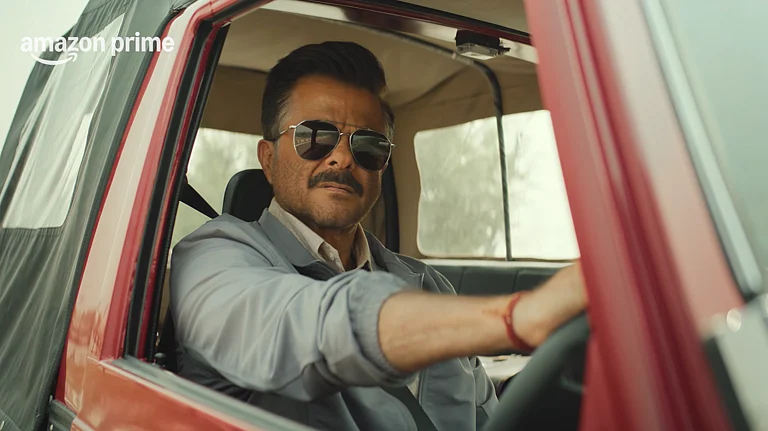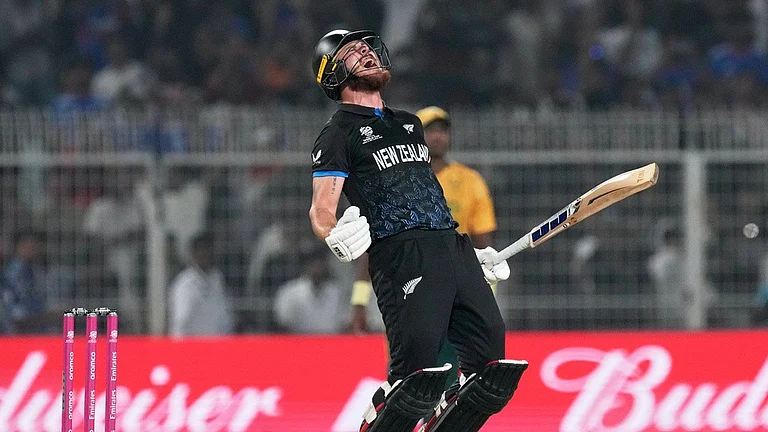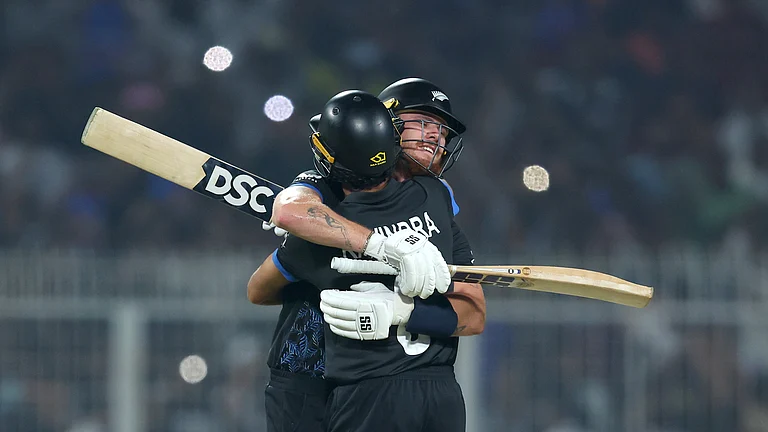While ‘Animal’ continues to roar at the box office, it may be interesting to explore a few films that had at its core a violent father-son conflict. We are not talking about father-son disagreements over the son’s choice of wife (‘Parichay’, 1971) or career (‘Alaap’, 1977) with the son walking out of his father’s home. We are talking about those physical confrontations in which only one of them could survive.
In ‘Mughal-E-Azam’ (1960) Prince Salim formally writes to his father Emperor Akbar demanding that, consistent with the history of royalty marrying the woman of their choice, Salim too be permitted to marry Anarkali and that she be declared the crowned Empress-to-be of Hindustan, failing which Akbar may assume rebellion to be declared against Akbar’s empire. But was this rebellion and the resultant war in which Akbar went up to the point of almost blasting Salim to death with a cannon needed? Perhaps Akbar felt that, since Anarkali was a kaneez (servant) and a dancing girl in his court, he owned her. Whatever the reason, sinking the empire’s official military resources over a family matter was an irresponsible act by both father and son.
In ‘Sangram’ (1950), spoilt by his father’s excessive love and affection, young boy Kunwar takes to bunking school, gambling and getting into scuffles with the good-for-nothing neighbourhood boys at the age of 12. On growing up he runs a casino, pulls off a gold heist, and flees the city. Now, his father Thakur Narendra Singh was an honest police officer, and this led to the inevitable confrontation with the dutiful father having to shoot the son to death. Something like this happened again in ‘Shakti’ (1982) but the root cause was nuanced. Kunwar in ‘Sangram’ was born defective with a penchant for wrongdoing, bragging that the law scared only the cowards and that he was not scared of anyone. In ‘Shakti’, the son Vijay developed a life-long hatred towards his father Inspector Ashwini Kumar after that specific incident in which his father refused to save his life when young Vijay was held hostage by the villain. Interestingly, in a shootout scene, Vijay had a chance to let a bullet fly at his disarmed father but threw his pistol away and courted arrest. But Ashwini Kumar would make no such concessions in the finale when Vijay was running away after murdering his mother’s killer.
‘Aakhree Raasta’ (1986) was a curious exception. The policeman’s son Vijay is tasked with nabbing his revenge-thirsty father David. But unlike ‘Sangram’ or ‘Shakti’, there was no hostility between father and son. In fact, David bristles with pride at his son’s valour while Vijay gets David’s motive behind the murders. But duty was duty for Vijay. The violent father-son encounters once again left only one of them alive.
It is so much more gut-wrenching when the father and son confront each other as strangers. In ‘Rustom Sohrab’ (1963) the mighty Rustom of Iran is called away to war leaving his pregnant wife Tehmina behind. She bears a son Sohrab who grows up without ever being told who his father was. This was done in the interest of Sohrab’s safety because Rustom’s enemies were on the prowl for the family. And, even worse, the enemies of Rustom lie to Sohrab that the assassin of Sohrab’s unknown father was none other than Rustom. A revenge-seeking Sohrab engages Rustom in a one-on-one combat in which Rustom wounds his son fatally. As life ebbs out of Sohrab, he shows Rustom the amulet that his unknown father had given to Tehmina to bequeath to their unborn son. Rustom realises to his horror that the young man he had just slayed was none other than his son. Rustom weeps over Sohrab’s dead body.
RK Gupta in ‘Trishul’ (1978) was almost destined to meet a similar fate as Rustom, having given orders to have the young fast-track businessman rival Vijay Kumar eliminated as Vijay had systematically decimated Gupta’s real estate business. And then Gupta discovered that Vijay was his son — the child of the woman he had discarded 25 years ago after making her pregnant. Bullets did fly in the showdown but with a repentant Gupta taking in his chest the bullet meant for Vijay.
These father-son finale collisions weren’t always with firearms. In ‘Awara’ (1951) and ‘Gambler’ (1971), these took place in the courtroom. In both cases the son, having been discarded by his natural father before his birth and therefore unaware of his parentage, had been coaxed into a world of crime by a criminal in the garb of a benefactor. It was ironic justice that in both films the son, charged with homicide of the rogue ‘benefactor’, stood in the accused box of the courtroom. And in both cases, the father was in a position of influence to mete out to the young man —who he did not know was his son— harsh punishment per law. It was Judge Raghunath in ‘Awara’ and Public Prosecutor Amar Mehta in ‘Gambler’. But during the court proceedings when the blood relation was revealed the equations changed. Contrite Raghunath and Amar Mehta accept Raj and Raja as their sons. Raj gets a three-year jail sentence while Raja gets absolved.
And more recently, the alpha male in Animal had beta issues.
(Balaji Vittal is a National Award-winning and MAMI Award-winning author of Bollywood books, a columnist, a Bollywood commentator, and a public speaker. He can be reached on X at @vittalbalaji and his website is www.balajivittal.com. Views expressed are personal.)





















